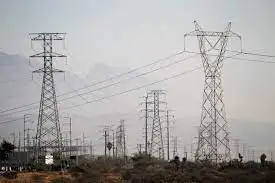Industrial boilers benefit from demand for process heat energy
By Business Wire
Protective Relay Training - Basic
Our customized live online or in‑person group training can be delivered to your staff at your location.

- Live Online
- 12 hours Instructor-led
- Group Training Available
New analysis from Frost & Sullivan, Southeast Asian Industrial Boilers Markets, finds that the market earned revenues of $252.2 million in 2006 and estimates this to reach $382.6 million in 2013.
Market growth in each country in Southeast Asia may vary depending on the countryÂ’s industrial policy, existing tariff structure, maturity of technology, power availability, and fuel resources. However, the keen focus of industries such as food and beverages, manufacturing, plastics, rubber, pharmaceuticals, automobiles, and petrochemicals on improving energy efficiency strategies has significantly benefited the industrial boilers market.
The market is highly competitive because of the presence of numerous multinational and local equipment suppliers. Most local manufacturers enjoy immense popularity, especially among the price-sensitive small- and medium-sized companies.
Although some local companies also import low-cost equipment from China, end users prefer companies with local manufacturing bases, since it eliminates red tape. The strong presence of local suppliers even curtails the expansion plans of multinationals, which are preferred only by companies with critical applications.
“Most local manufacturers partner with or license the technology of industrial boilers from well-known European and U.S.-based multinational equipment suppliers,” says Frost & Sullivan Industry Analyst Suchitra Sriram. “Market participants will also gain from strong support for cogeneration power plants and by selling the surplus power generated to the local utility grid at attractive prices.”
Meanwhile, rising concerns about the environment have created a demand for environment-friendly power generation technologies in the industrial boiler market. This trend is expected to trigger wider adoption of diverse, clean fuels such as biomass and biogas.
The increasing prices of oil and gas are also causing a shift in focus from conventional fuels to greener ones. The abundance of biomass in agro-based countries such as the Philippines only enhances the demand for biomass boilers.
“Industries’ move to retrofit coal and oil-fired boilers with biomass boilers and replace old packaged boilers with new ones have given a huge boost to the market,” notes Sriram. “These changes are in line with the governments’ visions of environmental awareness and promotion of green energy technology.”
The governmentsÂ’ favorable import laws have also gone a long way in driving uptake of industrial boilers, despite the slowdown in industrial development in Southeast Asia. For instance, the import laws for industrial equipment in Malaysia are simple, and this facilitates the expansion of the market, while in Thailand, the import tariff on boilers and boiler parts is only 5.0 percent.
These laws also enable local manufacturers to import technologically advanced machinery from suppliers in Japan, Germany, and Belgium. They can also collaborate with multinational companies to gain technical expertise, thereby offer boilers with higher efficiencies and better output.











